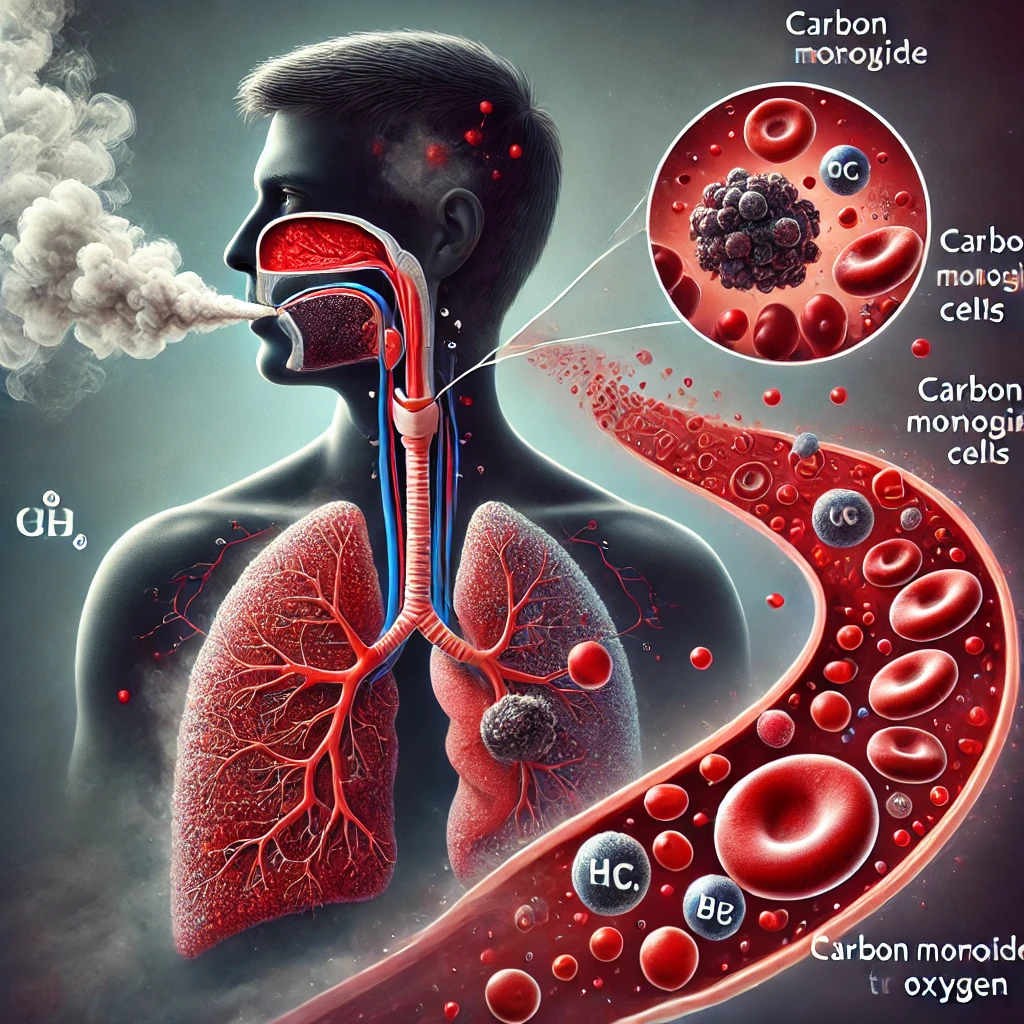The Stress Hormone Unveiled : Cortisol’s Role in Your Body and Mind
Stress is an unavoidable part of modern life, but have you ever wondered about the biological mechanisms behind your body’s response to stressful situations? At the heart of this complex process lies a hormone called cortisol, often referred to as the “stress hormone.” In this comprehensive exploration, we’ll delve into the fascinating world of cortisol, uncovering its functions, effects, and the intricate balance it maintains in our bodies.
What is Cortisol?
Cortisol is a steroid hormone produced by the adrenal glands, which are located atop the kidneys. It belongs to a class of hormones called glucocorticoids and plays a crucial role in various physiological processes (Thau et al., 2021). While cortisol is commonly associated with the stress response, its functions extend far beyond that, influencing metabolism, immune function, and even cognitive processes.
The Cortisol Rhythm
One of the most intriguing aspects of cortisol is its diurnal rhythm. Under normal circumstances, cortisol levels follow a predictable 24-hour cycle, known as the circadian rhythm. Typically, cortisol levels are highest in the early morning, helping us wake up and feel alert. They gradually decrease throughout the day, reaching their lowest point around midnight (Doane et al., 2018).
This natural rhythm is essential for maintaining various bodily functions and can be disrupted by factors such as stress, sleep disturbances, and certain medical conditions. Understanding this rhythm is crucial for healthcare professionals when interpreting cortisol test results and diagnosing related disorders.
Cortisol and the Stress Response
When we encounter a stressful situation, our body activates the hypothalamic-pituitary-adrenal (HPA) axis, a complex system involving the hypothalamus, pituitary gland, and adrenal glands. This activation triggers the release of cortisol, preparing the body for a “fight or flight” response (Smith & Vale, 2006).
During acute stress, cortisol serves several important functions:
- Energy mobilization: Cortisol helps break down stored glycogen into glucose, providing quick energy to the body.
- Immune system regulation: It temporarily suppresses non-essential immune functions to conserve energy for immediate survival needs.
- Cardiovascular effects: Cortisol works in tandem with other hormones to increase heart rate and blood pressure, improving blood flow to vital organs.
- Cognitive function: In the short term, cortisol can enhance focus and attention, helping us deal with the immediate stressor.
While these effects are beneficial in acute stress situations, prolonged elevation of cortisol levels can lead to various health issues.
The Dark Side : Chronic Stress
In our fast-paced world, many people experience chronic stress, leading to persistently elevated cortisol levels. This long-term exposure to high cortisol can have detrimental effects on health, including:
- Weight gain: Chronic high cortisol can increase appetite and lead to abdominal fat accumulation (Jackson et al., 2017).
- Immune suppression: Prolonged cortisol elevation can weaken the immune system, making individuals more susceptible to infections and illnesses.
- Cardiovascular problems: Sustained high cortisol levels are associated with an increased risk of hypertension and heart disease (Whitworth et al., 2005).
- Mental health issues: Chronic stress and elevated cortisol have been linked to anxiety, depression, and cognitive impairment (Oosterholt et al., 2015).
- Sleep disturbances: High cortisol levels can interfere with normal sleep patterns, leading to insomnia and other sleep disorders.
Understanding these potential consequences underscores the importance of stress management and maintaining a healthy cortisol balance.
Cortisol’s Role in Metabolism
Beyond its stress-related functions, cortisol plays a vital role in metabolism. It helps regulate blood sugar levels by promoting gluconeogenesis, the process of producing glucose from non-carbohydrate sources. This function is particularly important during fasting or prolonged exercise (Kuo et al., 2015).
Cortisol also influences fat, protein, and carbohydrate metabolism. It can stimulate fat and protein breakdown to provide energy during times of stress or fasting. However, chronic elevation of cortisol can lead to muscle wasting and increased fat storage, particularly in the abdominal area.
Cortisol and the Immune System
The relationship between cortisol and the immune system is complex and multifaceted. In the short term, cortisol has anti-inflammatory effects, which can be beneficial in controlling excessive immune responses. This is why synthetic cortisol (corticosteroids) is often used to treat inflammatory conditions like asthma and rheumatoid arthritis (Cain & Cidlowski, 2017).
However, chronically elevated cortisol levels can suppress the immune system, making individuals more susceptible to infections and potentially impacting the body’s ability to fight off diseases. This delicate balance highlights the importance of maintaining normal cortisol rhythms for optimal immune function.
Cortisol and Brain Function
The effects of cortisol on the brain are particularly fascinating. The brain is rich in cortisol receptors, especially in areas involved in memory, learning, and emotional processing. Short-term elevation of cortisol can enhance cognitive function and memory formation, likely an evolutionary adaptation to help remember important survival information during stressful events (Vogel et al., 2016).
However, chronic exposure to high cortisol levels can have detrimental effects on brain structure and function. Studies have shown that prolonged stress and elevated cortisol can lead to changes in the hippocampus, a brain region crucial for memory and learning. This may contribute to cognitive decline and an increased risk of neurodegenerative diseases like Alzheimer’s (Notarianni, 2017).
Measuring and Managing Cortisol Levels
Given the wide-ranging effects of cortisol on health, measuring cortisol levels can provide valuable insights into an individual’s stress levels and overall health. Cortisol can be measured through blood, saliva, or urine tests. Salivary cortisol tests are becoming increasingly popular due to their non-invasive nature and ability to capture the diurnal cortisol rhythm (Hellhammer et al., 2009).
For those concerned about their cortisol levels, several strategies can help maintain a healthy balance:
- Stress management techniques: Practices like meditation, deep breathing exercises, and yoga can help reduce stress and normalize cortisol levels (Pascoe et al., 2017).
- Regular exercise: Moderate, consistent exercise has been shown to help regulate cortisol rhythms and improve stress resilience (Anderson & Wideman, 2017).
- Healthy sleep habits: Maintaining a regular sleep schedule can help normalize cortisol’s diurnal rhythm (Hirotsu et al., 2015).
- Balanced diet: A diet rich in whole foods, with a focus on complex carbohydrates, lean proteins, and healthy fats, can help stabilize blood sugar and cortisol levels.
- Social connections: Strong social support has been associated with better stress management and more balanced cortisol levels (Hostinar et al., 2014).
Conclusion
Cortisol, often simplistically labeled as the “stress hormone,” is a complex and vital component of our body’s regulatory systems. From its role in the stress response to its influences on metabolism, immune function, and cognitive processes, cortisol’s impacts are far-reaching and nuanced.
Understanding the intricate balance of cortisol in our bodies can provide valuable insights into our overall health and well-being. By recognizing the signs of cortisol imbalance and implementing strategies to maintain healthy cortisol rhythms, we can take proactive steps towards better stress management and overall health.
As research in this field continues to evolve, our understanding of cortisol and its effects on the body and mind will undoubtedly deepen, potentially opening new avenues for managing stress-related health issues and improving quality of life in our fast-paced world.
Written by : Farokh Shabbir
References
Anderson, T., & Wideman, L. (2017). Exercise and the cortisol awakening response: A systematic review. Sports Medicine – Open, 3(1), 37. https://doi.org/10.1186/s40798-017-0102-3
Cain, D. W., & Cidlowski, J. A. (2017). Immune regulation by glucocorticoids. Nature Reviews Immunology, 17(4), 233-247. https://doi.org/10.1038/nri.2017.1
Doane, L. D., Chen, F. R., Sladek, M. R., Van Lenten, S. A., & Granger, D. A. (2018). Latent trait cortisol (LTC) levels: Reliability, validity, and stability. Psychoneuroendocrinology, 89, 194-202. https://doi.org/10.1016/j.psyneuen.2018.01.010
Hellhammer, D. H., Wüst, S., & Kudielka, B. M. (2009). Salivary cortisol as a biomarker in stress research. Psychoneuroendocrinology, 34(2), 163-171. https://doi.org/10.1016/j.psyneuen.2008.10.026
Hirotsu, C., Tufik, S., & Andersen, M. L. (2015). Interactions between sleep, stress, and metabolism: From physiological to pathological conditions. Sleep Science, 8(3), 143-152. https://doi.org/10.1016/j.slsci.2015.09.002
Hostinar, C. E., Sullivan, R. M., & Gunnar, M. R. (2014). Psychobiological mechanisms underlying the social buffering of the hypothalamic-pituitary-adrenocortical axis: A review of animal models and human studies across development. Psychological Bulletin, 140(1), 256-282. https://doi.org/10.1037/a0032671
Jackson, S. E., Kirschbaum, C., & Steptoe, A. (2017). Hair cortisol and adiposity in a population‐based sample of 2,527 men and women aged 54 to 87 years. Obesity, 25(3), 539-544. https://doi.org/10.1002/oby.21733
Kuo, T., McQueen, A., Chen, T. C., & Wang, J. C. (2015). Regulation of glucose homeostasis by glucocorticoids. Advances in Experimental Medicine and Biology, 872, 99-126. https://doi.org/10.1007/978-1-4939-2895-8_5
Notarianni, E. (2017). Cortisol: Mediator of association between Alzheimer’s disease and diabetes mellitus? Psychoneuroendocrinology, 81, 129-137. https://doi.org/10.1016/j.psyneuen.2017.04.008
Oosterholt, B. G., Maes, J. H., Van der Linden, D., Verbraak, M. J., & Kompier, M. A. (2015). Cognitive performance in both clinical and non-clinical burnout. Stress, 18(2), 189-198. https://doi.org/10.3109/10253890.2015.1004629
Pascoe, M. C., Thompson, D. R., Jenkins, Z. M., & Ski, C. F. (2017). Mindfulness mediates the physiological markers of stress: Systematic review and meta-analysis. Journal of Psychiatric Research, 95, 156-178. https://doi.org/10.1016/j.jpsychires.2017.08.004
Smith, S. M., & Vale, W. W. (2006). The role of the hypothalamic-pituitary-adrenal axis in neuroendocrine responses to stress. Dialogues in Clinical Neuroscience, 8(4), 383-395. https://doi.org/10.31887/DCNS.2006.8.4/ssmith
Thau, L., Gandhi, J., & Sharma, S. (2021). Physiology, cortisol. In StatPearls [Internet]. StatPearls Publishing. https://www.ncbi.nlm.nih.gov/books/NBK538239/
Vogel, S., Fernández, G., Joëls, M., & Schwabe, L. (2016). Cognitive adaptation under stress: A case for the mineralocorticoid receptor. Trends in Cognitive Sciences, 20(3), 192-203. https://doi.org/10.1016/j.tics.2015.12.003
Whitworth, J. A., Williamson, P. M., Mangos, G., & Kelly, J. J. (2005). Cardiovascular consequences of cortisol excess. Vascular Health and Risk Management, 1(4), 291-299. https://doi.org/10.2147/vhrm.2005.1.4.291











